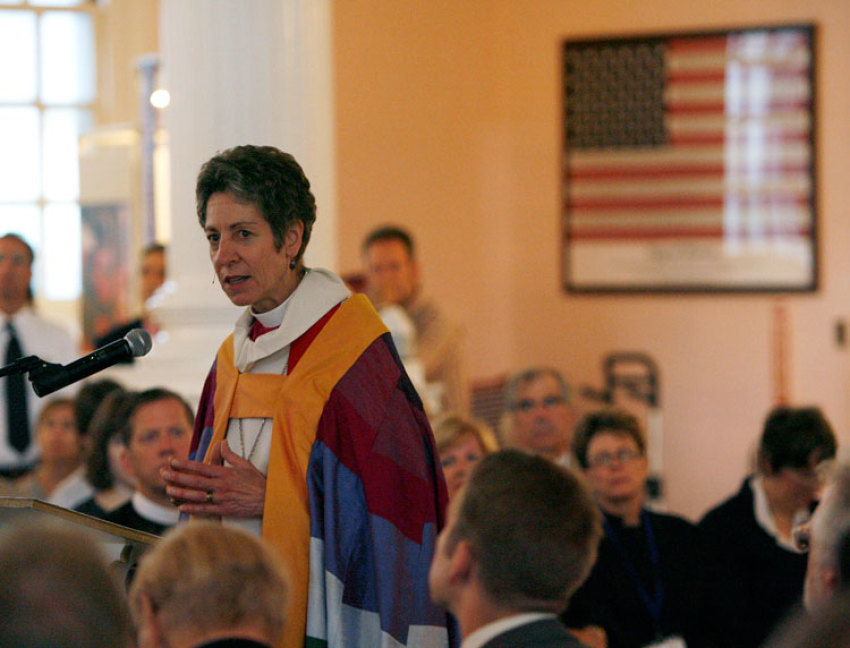Head of Episcopal Church Says She Will Not Seek Re-Election

The head of The Episcopal Church has announced that she will not seek re-election, ending speculation as to whether or not the mainline denomination will have a change in leadership.
The Reverend Katharine Jefferts Schori announced Tuesday that she will not seek a second nine year term as Presiding Bishop.
"I believe I can best serve this Church by opening the door for other bishops to more freely discern their own vocation to this ministry," stated Jefferts Schori.
"I will continue to engage us in becoming a more fully diverse Church, spreading the gospel among all sorts and conditions of people, and wholeheartedly devoted to God's vision of a healed and restored Creation."Jefferts Schori also noted in her announcement that "navigated a season of extraordinary change in recent years."
"Our Christian values have been challenged and we are becoming clearer and more confident about the faith we share," said Jefferts Schori.
"Today we are far more cognizant of the diversity of this multinational and multicultural Church, and the great blessing of the diverse peoples and cultures we represent."
Previously the bishop of Nevada, Jefferts Schori was elected to the position of Presiding Bishop in June 2006 and formally invested at Washington National Cathedral in November of that year.
Jefferts Schori was the 26th Presiding Bishop of The Episcopal Church and, given the rules of the denomination, could have served a second nine-year term.
"Jefferts Schori, who turned 60 earlier this year, could have served an additional nine years, had she been nominated and elected," noted Episcopal News Service. "A presiding bishop is subject to the church's mandatory clergy retirement age of 72. According to Canon 1.2.2, if a presiding bishop will turn 72 before the end of the nine-year term, then he or she must resign at the General Convention nearest to that birthday."
Jefferts Schori became Presiding Bishop at a time when The Episcopal Church was being rocked by theological debates between liberals and conservatives, especially over the issue of homosexuality.
During Jefferts Schori's term, the Church experienced a large number of congregations vote to leave the denomination over items such as the 2003 ordination of openly gay bishop Gene V. Robinson.
The Church also experienced a continual decline in membership due to multiple factors, dipping below the 2 million mark by 2011.
In August 2013, Jefferts Schori said in a speech at the Evangelical Lutheran Church in America's (ELCA) Churchwide Assembly in Pittsburgh that such membership losses may be the work of the Holy Spirit to create "greater fruitfulness."
"Some have judged our smaller numbers as faithlessness but it may actually be the Spirit's way of pruning for greater fruitfulness," said Jefferts Schori.
Jeff Walton, Anglican Program Director at the Institute on Religion and Democracy, told The Christian Post that while Jefferts Schori and theological conservatives were often at odds with one another, they "were instrumental to one another's rise."
"The Anglican Church in North America (ACNA) and the Global Anglican Future Conference (GAFCON) would most likely not have found their footing without an exodus of conservative Episcopalians sent packing by the clear, unambiguous contrasts drawn by Jefferts Schori that Jesus Christ is not the only way to salvation," said Walton.
"Similarly, Jefferts Schori directly benefitted from church traditionalists: she was elected by the slimmest of margins with support from three conservative bishops, including the late John-David Schofield of the Diocese of San Joaquin."
Jefferts Schori's term as Presiding Bishop will conclude at The Episcopal Church's next General Convention, slated to be held in Salt Lake City next June.



























